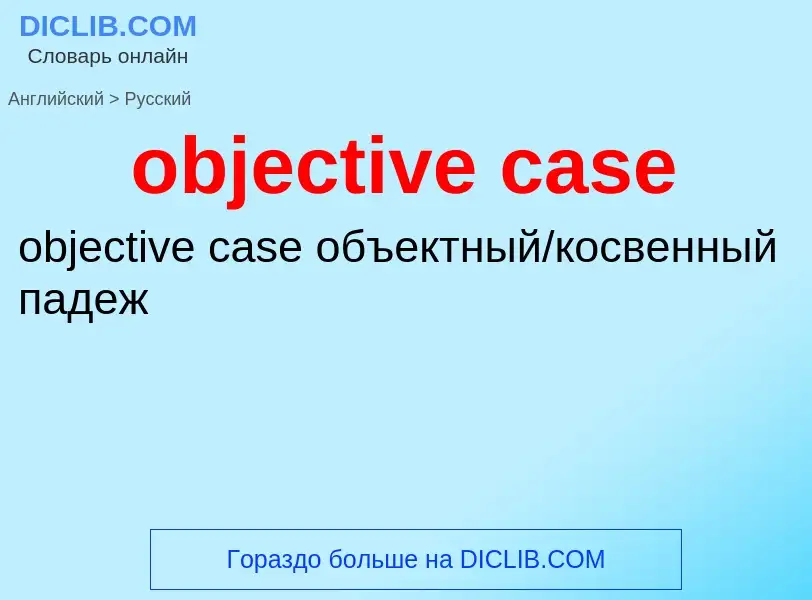Translation and analysis of words by ChatGPT artificial intelligence
On this page you can get a detailed analysis of a word or phrase, produced by the best artificial intelligence technology to date:
- how the word is used
- frequency of use
- it is used more often in oral or written speech
- word translation options
- usage examples (several phrases with translation)
- etymology
objective case - translation to English
общая лексика
объектный/косвенный падеж
Definition
-разветвлять
и разветвиться-разветвляться. Разветвление реки. Разветвление дороги.
Wikipedia
In grammar, an oblique (abbreviated OBL; from Latin: casus obliquus) or objective case (abbr. OBJ) is a nominal case other than the nominative case, and sometimes, the vocative.
A noun or pronoun in the oblique case can generally appear in any role except as subject, for which the nominative case is used. The term objective case is generally preferred by modern English grammarians, where it supplanted Old English's dative and accusative. When the two terms are contrasted, they differ in the ability of a word in the oblique case to function as a possessive attributive; whether English has an oblique rather than an objective case then depends on how "proper" or widespread one considers the dialects where such usage is employed.
An oblique case often contrasts with an unmarked case, as in English oblique him and them versus nominative he and they. However, the term oblique is also used for languages without a nominative case, such as ergative–absolutive languages; in the Northwest Caucasian languages, for example, the oblique-case marker serves to mark the ergative, dative, and applicative case roles, contrasting with the absolutive case, which is unmarked.

